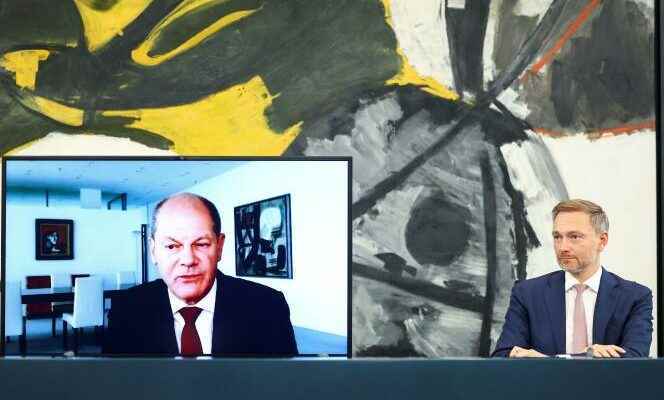While the energy crisis lasts, Germany will release up to 200 billion additional euros to cap the prices of gas and electricity which weigh down its economy and the purchasing power of households, announced Thursday, September 29 Chancellor Olaf Scholz. In September, inflation in Germany jumped to 10% over one year, the highest value recorded since 1951, according to provisional figures published the same day.
“Prices must come down (…), the German government will do everything to bring them down” both for households and for businesses, he hammered. The details of the price cap device, demanded for weeks by companies taken by the throat, must still be refined and the date of entry into force of the measure is not yet known.
Decided after weeks of negotiations within the coalition, this “tariff shield” is not a first in the European Union, faced with an energy crisis unprecedented for 50 years. Several member countries, such as France and Spain, already apply a ceiling to energy prices.
“A clear answer to Putin”
“We find ourselves in an energy war for prosperity and freedom”added Finance Minister Christian Lindner, stressing that the situation had worsened “after sabotage by unknown perpetrators” Nord Stream gas pipelines in the Baltic Sea.
“This energy war is about destroying much of what people have personally built for decades”said the minister. “We cannot accept this and we are defending ourselves”he added, presenting the new aid measures as “a clear answer to Putin”.
Germany is paying a high price for its dependence on Russian gas, which accounted for 55% of its gas imports before the war in Ukraine. She must now find other sources of supply on the spot market where prices have exploded. The country will fall into recession next year, predict economists and the energy crisis will leave its mark.
“Gas prices are expected to remain well above pre-crisis levels. This will result in a lasting loss of prosperity” for the first European economy, warned the main economic institutes of the country in their autumn forecasts unveiled on Thursday. the ” shield “ announced by Berlin comes on top of previous support measures already totaling around 100 billion euros.
Exceptional public fund
The cap announced Thursday should be financed by the Stabilization Fund for the economy, created during the pandemic to support businesses and which will be provided with additional resources. This exceptional public fund, which is financed via specific lines of credit and therefore not counted in the annual budgetary expenditure, will allow the government to remain within the nails of its financial commitments.
Germany wants to return next year to the rule of “debt brake”, a constitutional principle which prohibits it from going into debt at more than 0.35% of GDP per year and which had been suspended since 2020 due to the pandemic. If the budget rule is officially respected, the bill for the energy crisis is already considerable for the Scholz government, which has also initiated the nationalization, or taken control, of several companies in the energy sector threatened with bankruptcy.
In announcing the energy price cap on Thursday, Berlin took the opportunity to bury a controversial proposed gas surcharge, which would have placed an additional burden on households and businesses across the country. Supposed to come into force on 1er October, this surcharge was intended to support companies in the gas sector by passing on part of the dizzying increase in their costs to consumers. But it had caused an outcry since its announcement this summer, and seemed more and more obsolete after the nationalization in September of Uniper, the first German importer of Russian gas.
